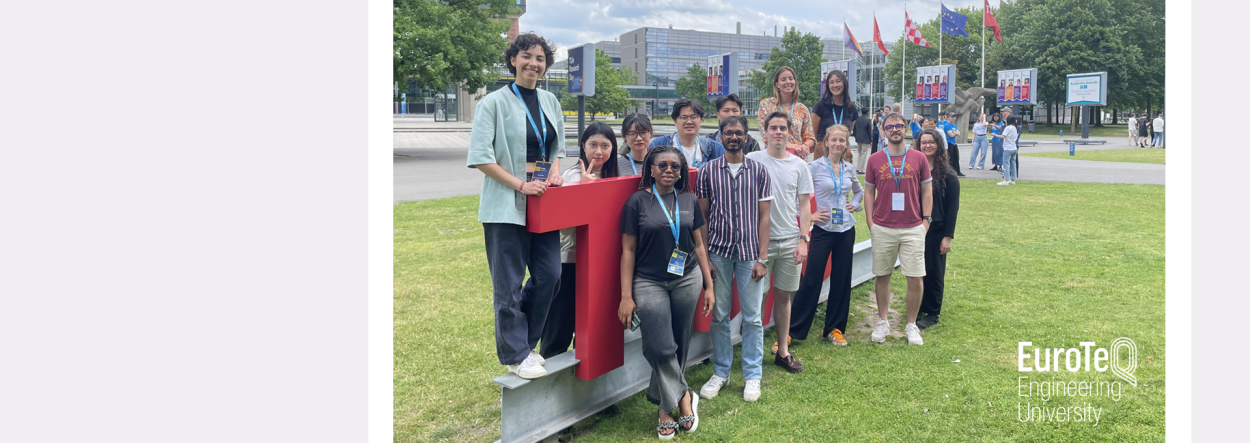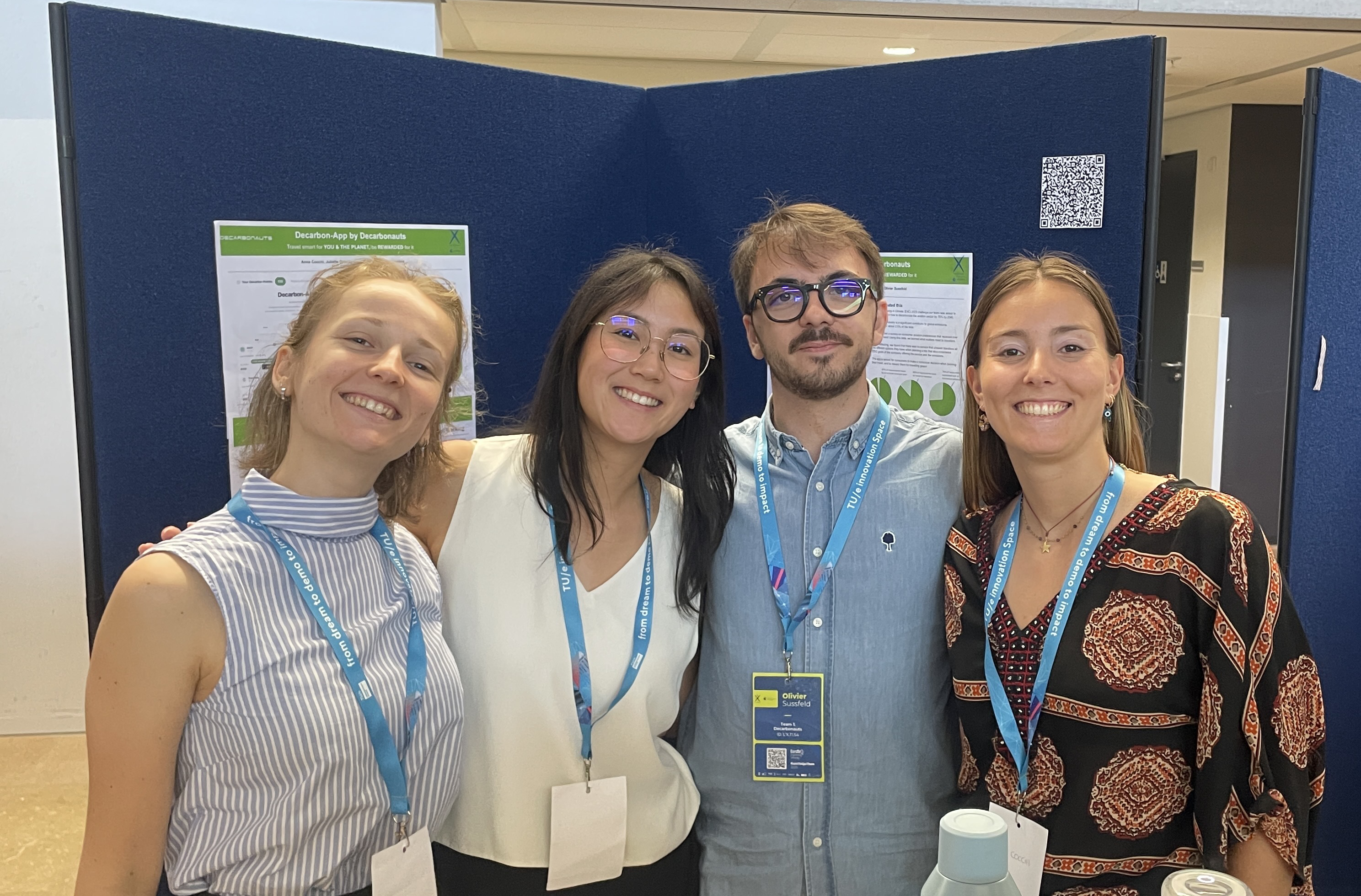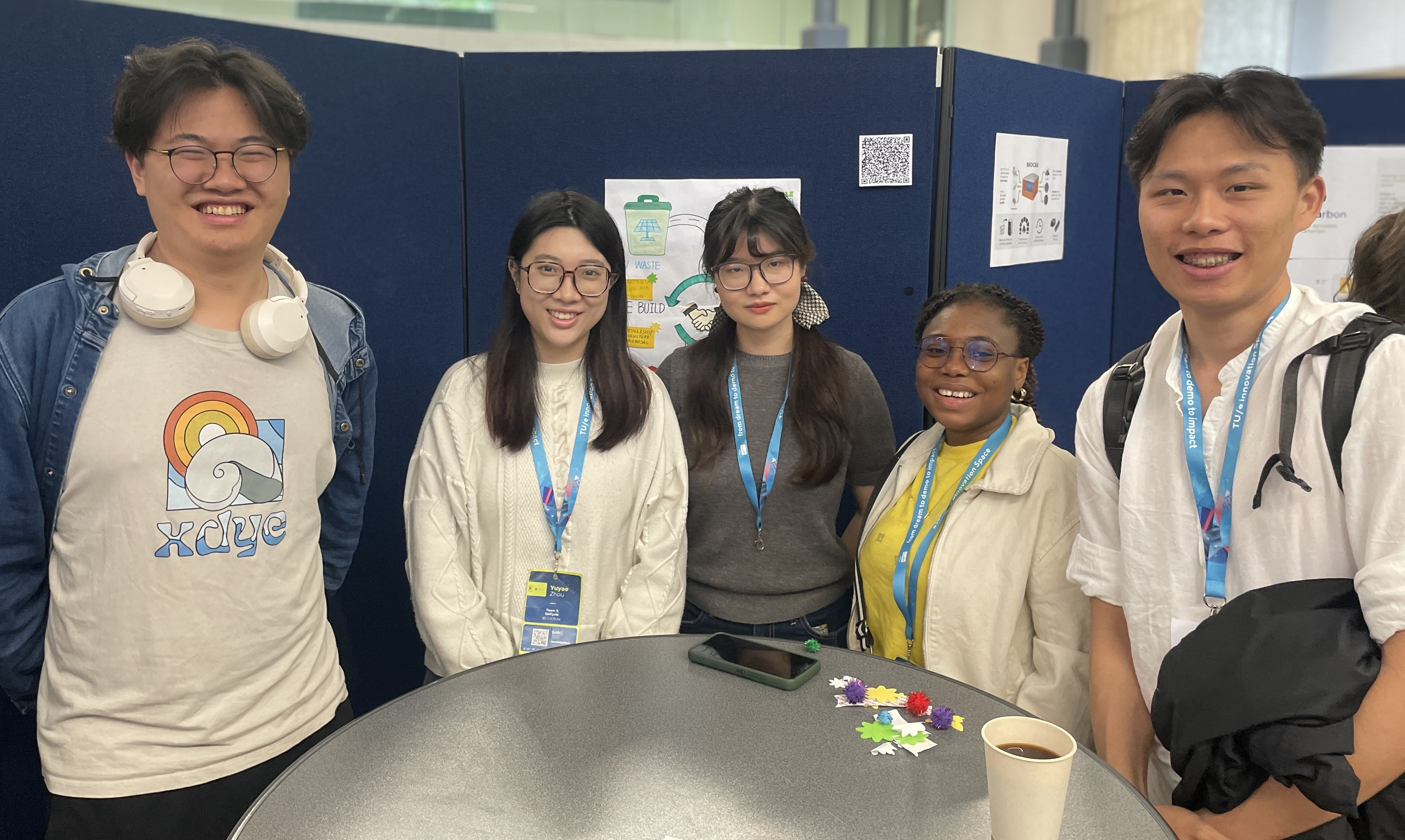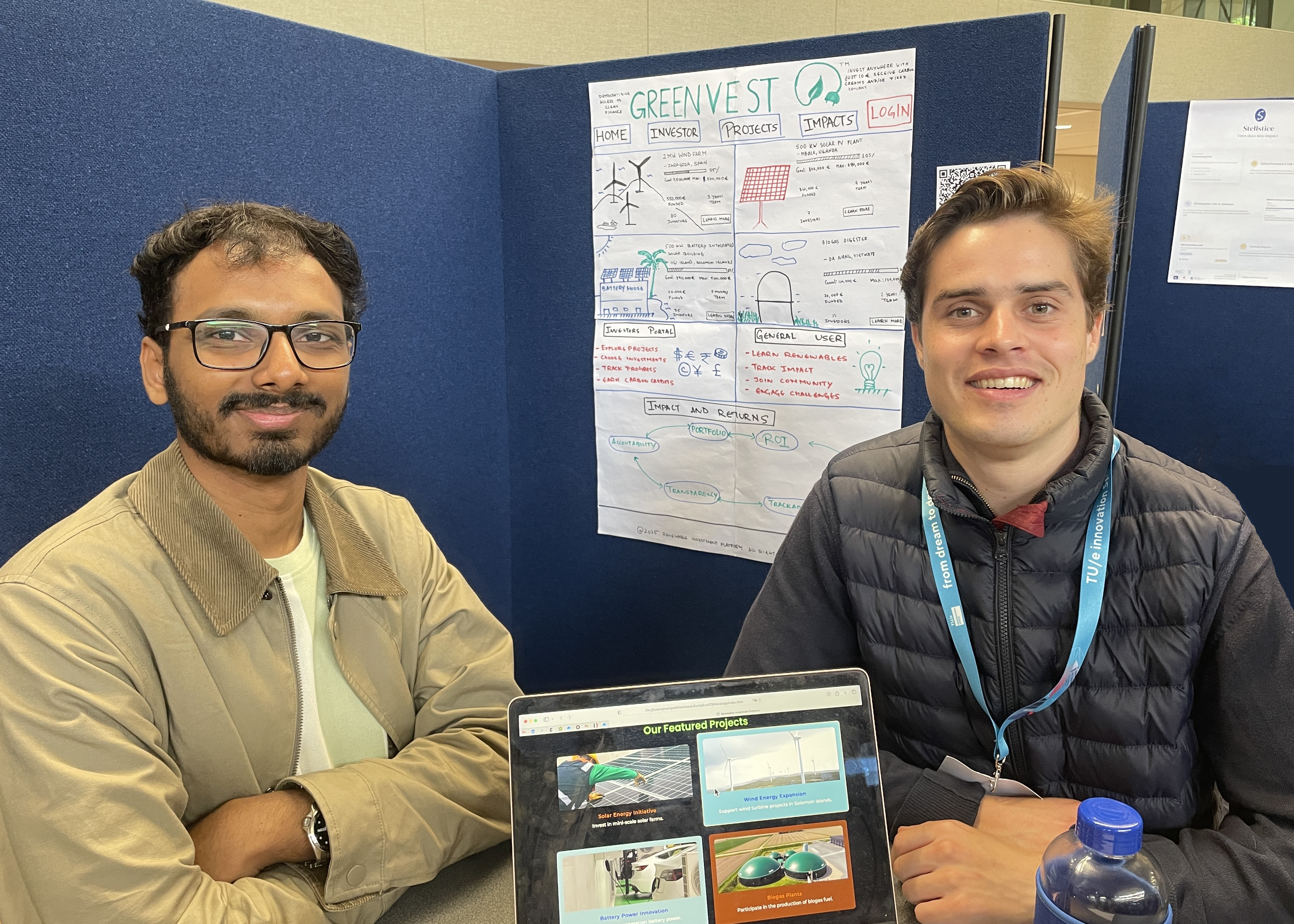EuroTeQaThon 2025: Fostering student innovation across Europe

After being hosted by École Polytechnique in 2024, the international EuroTeQaThon competition was held this year at Eindhoven University of Technology (TU/e) from June 14 to 16, 2025. In its fifth edition, the EuroTeQaThon invited students to tackle challenges centered around the theme “Enhance Connections for Sustainable Futures”.
Three student teams from École Polytechnique were among the over 20 teams from member institutions of the EuroTeQ Engineering University and pitched their projects to the jury. By challenging participants to develop solutions to real-world problems, the EuroTeQaThon demonstrates how challenge-based learning - as offered through the EuroTeQ Collider courses - contributes to training future engineers to innovate, collaborate, and propose sustainable solutions to pressing global issues aligned with the United Nations Sustainable Development Goals (SDGs).
“This experience was filled with stimulating encounters, vibrant energy, and intellectual challenges. It was a unique opportunity to meet brilliant and kind individuals from across Europe”, shares Anna Cocchi, a student at École Polytechnique and member of the team who pitched their project “Decarbonauts”.
The projects developed by the teams of students representing École Polytechnique at the competition offer solutions to three specific climate and energy challenges:
Decarbonauts: Towards cleaner aviation
The project aims to reduce aviation emissions by 75% by 2045. To achieve this, the team is proposing several measures, including taxing kerosene, promoting sustainable fuels, and encouraging people to take the train instead of short flights. The proposal is backed by solid data and considers the economic and societal impacts.

SolCycle: Recycling solar panels
This team addressed the issue of end-of-life solar panels. Their project, SolCycle, proposes a local recycling center that uses the efficient process of pyrolysis to recover up to 95% of the materials.

Greenvest: Investing for the climate
Greenvest aims to make green finance more accessible. The team has developed an online platform that enables users to invest transparently in climate-focused projects. The ultimate goal is to raise funds for initiatives that help protect the planet.

Learning through challenges
The EuroTeQ Collider offers an introductory pathway to social and environmental impact entrepreneurship. At École Polytechnique, students can engage with the Collider challenge through the Energy4Climate Challenge or two courses within the MScT program – “Sustainable Strategy and Business Models” and “Managing Sustainable Innovation”.
Benjamin Lehiany, a lecturer in École Polytechnique’s Management of Innovation and Entrepreneurship (MIE) department, teaches the “Sustainable Strategy & Business Models” course and has guided the students working on the SolCycle project. “The Collider provides students with a stimulating, collaborative context in which to apply course concepts and methodologies to practical, high-impact projects such as reducing the environmental footprint of solar farms”, he explains. He points out that “the original solutions for managing the end-of-life of solar panels developed by the students as part of the course offer very promising avenues for concrete innovation”.
The challenge-based learning approach asks students to move beyond a primarily theoretical framework and tackle real-world societal challenges. By encouraging them to turn ideas into concrete projects, this approach fosters their entrepreneurial mindset. While working on their projects in teams, students also learn to adapt to complex and unexpected situations, and to articulate their ideas clearly in front of professionals during the final pitch.
"Being able to offer students the opportunity to take part in a challenge and teach them the methodologies needed to develop a comprehensive project is an asset", states Pilar Acosta, a professor in École Polytechnique’s MIE department who supervised the projects of the other two finalist teams as part of the course "Managing Sustainable Innovation" she teaches.
“The Collider enables students to embark on a journey of personal learning, followed by a collective team effort, all aimed at creating a positive impact on real societal challenges. Throughout this journey, they learn a lot about themselves, confront uncertainty, evolve, and grow alongside the development of their project”, concludes Akos Wetters, a coach of the Collider at Tu/e.
All participants in the competition left with fresh ideas and a truly enriching personal experience. In addition, the winning teams were awarded a €1,000 prize.
Several teams will have the opportunity to take part in an upcoming bootcamp at IESE Business School, a partner university, in Barcelona, to continue developing their projects. The bootcamp is designed to equip participants with essential tools for innovation and entrepreneurship and guide them towards market readiness.
The winning projects
- GoodMetal has developed a real-time tracking system for critical minerals that combines satellite imagery, Internet of Things (IoT) sensors and blockchain technology. This system ensures the responsible sourcing of minerals while supporting low-carbon energy systems.
- BioThermoBox created a sustainable, temperature-controlled packaging solution for Ugandan banana producers. Made from banana fibre waste, this innovative product helps to reduce fruit waste and supports local economies.
- Beetle Juice proposes a zero-energy water collection system that uses smart materials to provide consistent access to water. This innovative approach addresses the pressing issue of water scarcity faced by smallholder farmers in Kenya.
- BlueRack, was bestowed the audience award for their circular solution to ocean plastic pollution. Their project helps reduce single-use plastic waste by transforming abandoned fishing nets into reusable can holders.
 Support l'X
Support l'X